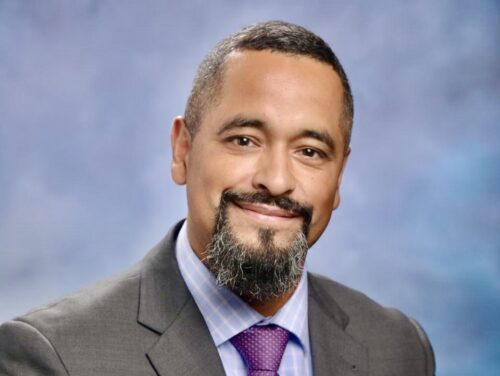NJ’s Farmers are Aging. Rutgers Program Looks to Bring in a New Generation

This story is being republished under a special NJ News Commons content-sharing agreement. Link to story: gothamist.com/news/njs-farmers-are-aging-rutgers-program-looks-to-bring-in-a-new-generation
The RU Ready to Farm program, housed at the Rutgers New Jersey Agricultural Experiment Station, offers people who didn’t inherit family farms or those switching careers a chance to get into the farming business for the first time.
The three-year training program, which launched last year, gives students hands-on farming experience and coaching on how to start a business.
“We’re seeing a real surge in interest amongst people who want to change into farming, but they’re not gonna be farming the same way that other farmers have for the last generation,” Brendon Pearsall, senior program coordinator for RU Ready to Farm, said.
He said people who’ve had other careers bring the knowledge, experience and innovation from their past endeavors with them.
The participants come in with “new eyes, a fresh perspective and they’re looking at the whole problem of agriculture in new and interesting ways,” he said.
Farming in the state brings in about $1 billion in annual revenue. The number of farms nationwide has decreased over the last few decades, according to the U.S. Department of Agriculture. In New Jersey, the amount of farms has hovered around 9,000-10,000 since the 1980s, the data show. According to the last Census of Agriculture in 2017, New Jersey had approximately 9,800 farms, up from the 9,000 in 2012, but the numbers have fluctuated over time.
But Bill Hlubik, director of Rutgers Cooperative Extension of Middlesex County and a Rutgers professor, said the industry is facing a looming problem—an aging generation of farmers who don’t always have people to carry on their responsibilities.
“Many of our farmers in New Jersey, they either don’t have a son or daughter that’s there to take over and they really want somebody to take over the farm and to keep farming active,” he said.
During a Saturday harvest last month, the students, who range from their late-20s to late-60s, were picking the last of the season’s cucumbers, beans and kale. The program also required them to find customers for their 10-week community-supported-agriculture program, which gives clients a weekly box of farm fresh produce.
“The idea of being a farmer in New Jersey, it never clicked that it was a possibility,” 34-year-old Natasha Luccia, who works at the Port Authority and is one of the students in the program, said. “What you see is defined as a farmer, like who is the average farmer, doesn’t look like me.”
Luccia said the program allowed her to find a community of people who like to nerd out about agriculture, like she does. The students text each other podcasts and memes on a WhatsApp group chat. And with the program, they’ve been able to experiment with different growing techniques and pest management strategies.
She said she’s not sure what career path she’ll follow yet, but several others in the program said they’re committed to switching their current jobs for one out in the field or getting into farming as a retirement venture.
“I’m more concerned about being happy and trying to live the life that I wanna live, being fulfilled. That’s sort of my ultimate goal over anything else,” said Lisa VanHorn, 39, who works in tech but wants to start a brewery where she grows her own ingredients.
The program, which is funded in part by a USDA grant, is now in its second year. The students pay $400 to take online courses the first year, and the following year, a select group is allowed to farm on a plot in Cream Ridge for $800 per person. Couples who take the course together, like VanHorn and her husband, can pay $1,200 for the pair. The third year is about developing business plans.
“Many of the people that are out here now didn’t necessarily have formal agricultural training at a university. So we’re bringing them up to speed so that they can learn some of the basics,” Hlubik said, adding that the program relies on farmers who can share their expertise and mistakes with the new crop of future growers. “We are becoming the pipeline from the university.”
Pearsall said the program’s leaders will help their students analyze soil, understand local zoning laws and even connect with farmers looking for employees.
“If we can save beginner farmers from making two or three critical errors on their way to becoming established farmers, then you know, we’ll have done our job,” he said.
Jennifer Peters, 54, of East Brunswick is a career counselor and wants to buy some land once she retires.
“The average age of farmers is close to my age, and that’s why they’re trying to get younger farmers. So I do keep in mind that I have to think, ‘What I can handle and what makes sense for me at my age?’” she said.
“I really wanna, you know, improve the soil and the earth and just be outside, not at a desk, and just be doing something physical and totally different than what I’m used to do.”










